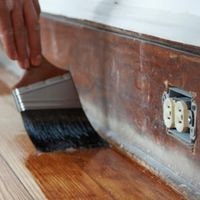GE dishwasher not draining after cycle ends
GE dishwasher not draining after cycle ends. Dishwashers have become today’s most helpful and time-saving cleaning machines, especially for rich and busy people. GE dishwashers are famous for their best workability and durability, but sometimes it stops working due to some errors.
If you are facing a GE dishwasher issue that does not drain after the cycle ends, it will not only keep the dishes dirty but also leave filthy and bad-smelling water. Does this problem make you upset, and do you want a solution?
This article is definitely for you, which will give you several successful solutions for dishwasher draining problems. You will also learn the factors affecting the GE dishwasher draining cycle here.
GE dishwasher not draining after cycle ends

Usually, GE dishwashers wash the dishes and eliminate the wastewater at the end of the cycle. The dishwashers work a washing role by pumping wastewater into the drain hose and then drain into the sink.
If you notice more than two cups of water remain in the bottom of the tub of the GE dishwasher, then your dishwasher has draining problems. When your dishwasher does not drain the dirty water at the end of the cycle, it indicates something is blocking in the draining.
Most of the 80% of draining problems in the dishwasher occur due to the clogged drain motor pump and a jammed drain hose. Another 20% of GE dishwasher draining issues happen because of the damaged drain impeller, improper garbage disposal installation, and obstructed air gap in the sink.
You can diagnose the cause of why your GE dishwasher not draining after cycle ends by considering the following reasons:
Reason 1: Clogged Drain Filter
When your GE dishwasher filter gets clogged with food debris, it will not enable the dishwasher to drain properly. The dishwasher drainage system depends on the drain filter, which gathers the food particles before going to the pump area.
This method of filtration protects the pump area from getting clogged with food debris. If you don’t clean the dishwasher filter regularly, it causes the filter to become blocked, and resultantly, your GE dishwasher will stop draining.
What to Do to Fix this Reason?
For the accurate draining system of the dishwasher, you should clean the GE dishwasher filter after every usage or at least once a week with hot soapy water and rinse it properly. Try not to put any oily substances in the drain filter, as this will inhibit the flow of substances.
Below are the easy instructions for cleaning the fine and ultra-fine filters of the GE dishwasher.
- Start with dissembling the bottom rack of the dishwasher.
- Remove the ultra-fine filter by twisting it clockwise and pulling it upwards.
- Then remove the fine filters by twisting
- Wash the filters carefully with hot and soapy water by using a soft sponge.
- Put both the filters back into place by locking the fine filter clockwise and the ultra-fine filters anticlockwise.
Reason 2: Garbage Disposal Problems
In case your dishwasher is attached to the garbage disposal instead of the drain line, and you forget to remove the plug from it, this will cause the GE dishwasher to stop working and prevent the waste water from draining. Moreover, the blocks in dishwasher disposal also cause drainage issues.
Quick Tip:
Make sure that you disconnect the drain hose from the garbage disposal of the GE dishwasher. I suggest you to run the garbage disposal before the washing cycle and clean the disposal carefully.
Note: Never forget to remove the drain plug to ensure complete drainage.
Reason 3: Incorrect Detergent Usage

An excessive amount of detergent usage during washing will also affect the drainage system in the GE dishwasher. It is wrong if you use too much detergent, thinking it makes the cleaning better.
It causes the buildup of suds in the drain pump, which blocks the drain way. This leads to the water not entering a drain during the wash cycle and causing the dishwasher to take too long to drain.
Best Possible Solution:
Don’t use too much detergent while washing the dishes, and if you have used excessive detergent, wipe the dishwasher’s internal part to remove the suds.
Also, run an empty dishwasher with hot water to remove all detergent residues. I recommend you to use safe and branded detergent for the efficient working of the GE dishwasher.
Reason 4: Clogged Drain Hose
Another reason the GE dishwasher won’t drain the wastewater at the end of the washing cycle is the blocked drain hose. If the drain hose is clogged by food debris and kinked, it will inhibit the water flow; unfortunately, you will find a puddle of water standing and dirty dishes in the Kitchen.
How to Fix?
Check the drain hose in the dishwasher and wash the hose to remove the blockages. You should ensure that the drainage hose is not kinked up. Replace the hose with a new one if your dishwasher hose is damaged.
Here I will discuss quick steps for removing the clogs from the drain hose:
- Power off the dishwasher and turn off the water supply valve.
- Next, carefully unscrew the drain hose clamp and remove the hose from the sink.
- Rinse the hose with hot and soapy water to clear clogs. You can also use vinegar and baking soda for washing.
- Then straighten the kinks gently.
- Put the hose back into its place and screw it tightly.
- Turn on the water supply valve and switch on the dishwasher.
Reason 5: No High Loop or Blocked Air Gap
The air gap is the main component of the GE dishwasher that is located at the bottom of the unit, and it works by preventing the water from backing up into the dishwasher. However, when the air gap is blocked with food particles and debris, it will reduce the drainage ability of the dishwasher.
Moreover, if the loop is not connected to the highest point of the sink drain, it will lead the wastewater drain back to the dishwasher. That’s why your GE dishwasher does not drain properly.
Best Fix:
Ensure that the loop is attached at the highest point under the drain sink for the proper functioning of the drainage system. Clean the air gap by using a paper towel or your fingers to remove the clogs completely.
Conclusion
Have you solved your GE dishwasher not draining issue from my article? If not, then reset the dishwasher by pressing the reset button for 3 to 4 seconds. Don’t forget to check the timer settings because a defective timer will also cause the dishwasher to drain too long. I advise you to clean the drain pipe, filter, and hose regularly or at least weekly to run the dishwasher smoothly.
Related Guides


